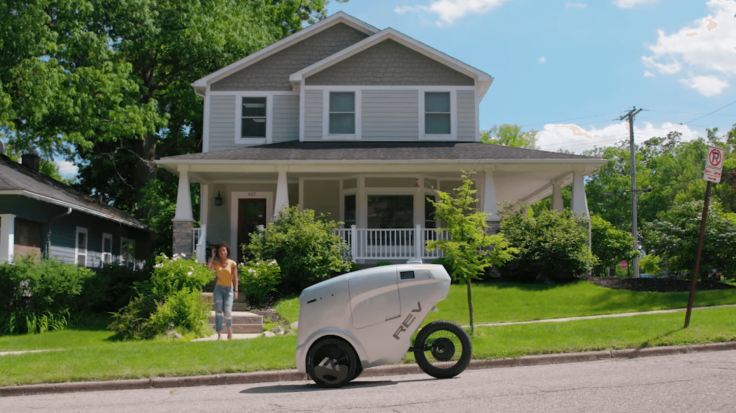
People in downtown Austin, Texas, may soon see autonomous delivery robots scurrying about on roads.
Popular fast-food restaurant chain Chick-Fil-A has recently announced it would be conducting a pilot test that would see Refraction AI's REV-1 autonomous delivery robots deliver orders to hungry customers.
The pilot test will involve two Chick-Fil-A restaurants in Austin, simultaneously.
Chick-Fil-A REV-1 Delivery Pilot Test
Chick-Fil-A mentioned in its announcement that its second pilot test would be held at the Chick-Fil-A restaurants on Martin Luther King Jr. Boulevard and the one at 6th & Congress in late June.
Although the number of REV-1 autonomous delivery robots Refraction AI will be delivering to the Chick-Fil-A stores in downtown Austin, Refraction chief technology officer and co-founder Matthew Johnson-Roberson told Tech Crunch that it would be "an order of 10."
He also mentioned that the pilot tests Chick-Fil-A is conducting seem to fill some gaps that still exist in current delivery offers on the market that isn't delivering "the level of service they were looking for."
Johnson-Roberson also added that the deal Chick-Fil-A made with Refraction AI is part of a larger set of tests for the company to "understand how it could serve quick-service restaurants by maximizing the profitability and effectiveness of robotic delivery."
Furthermore, Johnson-Roberson said that working with a large chain like Chick-Fil-A instead of individual restaurants would easily fill up Refraction AI's fleet capacity for all the robots it has now and the ones that it could potentially build "in the near to mid-term."
Refraction AI REV-1 Capabilities
Refraction AI's REV-1 is a low-cost, lightweight autonomous delivery robot that can operate in the bike lane and on the roadway due to it being built on a bicycle foundation.
It can travel up to speed of around 15 mph, which allows Refraction AI to increase delivery time while keeping tech costs down as a faster delivery robot would need an expensive LiDAR camera to see far away.
The robot requires very little human oversight as it only sticks to route that are easier to drive autonomously. Should it need to go to infrequently used routes or is facing a difficult situation that its autonomy can't address, the robot can be switch to teleoperated mode so an operator can control it.
During the pilot test, Refraction AI's REV-1 autonomous delivery robots will be seen traveling on the margin of the road or in a bike lane to avoid the speed, distance, and regulatory constraints of being on the sidewalk. This approach was used so that the robot will not incur the safety, technology, and cost challenges of full-size autonomous vehicles.
Additionally, the approach allows Refraction to complete last-mile deliveries with 90% lower carbon emissions, and 80% less energy consumption, at a fraction of the cost of conventional delivery methods, such as motorcycle riders.
Refraction AI equipped the robot with an insulated compartment to protect the food's temperature, thereby eliminating the need of reheating the food it delivers once it arrives on your doorstep. To achieve this, the company is aiming for a very low delivery time of "10 to 12 minutes," as Johnson-Roberson said.
Related Article : Cambridge Scientists Create A Culinary Robot that Can Cook Tastier Food









